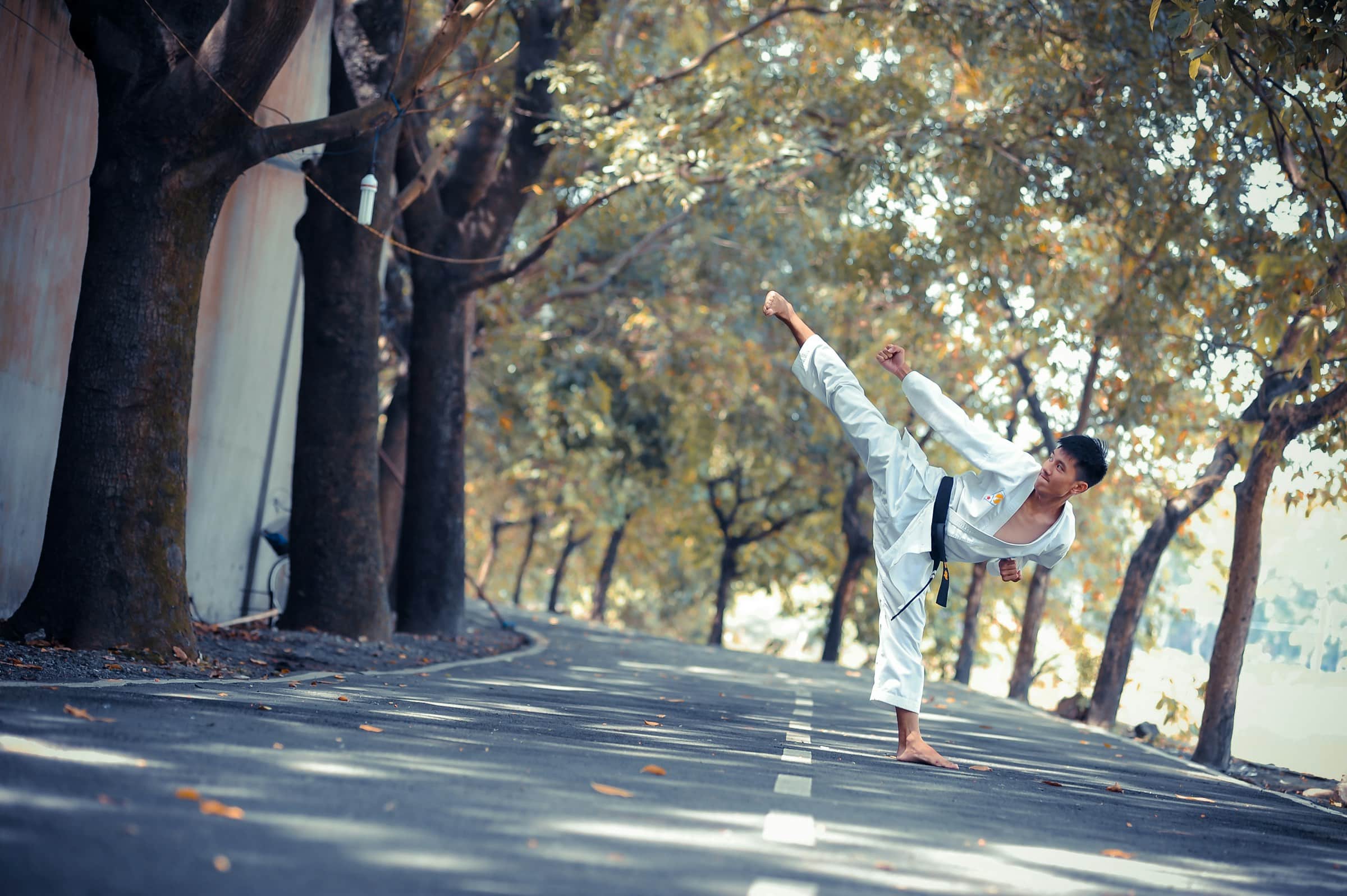Can Participating in Martial Arts Training Reduce Symptoms of ADHD in Children?

As you may be aware, ADHD, or attention-deficit/hyperactivity disorder, is a common behavioral condition that affects a significant number of children worldwide. It can manifest in various ways, including difficulty staying focused, controlling behavior, and being overly active. As parents, teachers, and caregivers, you are always on the lookout for ways to help your child manage their symptoms. One solution that has been gaining attention is the introduction of martial arts training to children with ADHD. The purpose of this article is to delve into the potential benefits of martial arts for children with ADHD, based on recent research and data from renowned sources such as Google Scholar and Pubmed.
Martial Arts and Its Impact on Children's Physical Health
Before we delve into how martial arts may benefit children with ADHD specifically, it's important to understand the general impact it can have on a child's physical health. Martial arts is a broad term that encompasses a variety of sports, such as karate, judo, kung fu, and taekwondo. Collectively, they offer comprehensive physical training, providing numerous benefits for growing kids.
A découvrir également : How Can Participating in Active Travel (e.g., Walking, Cycling) Improve Cardiovascular Health?
Martial arts training can boost physical fitness in children, fostering muscle strength, agility, and cardiovascular endurance. It can also help kids develop flexibility and coordination, both of which are crucial for their overall motor skills development. Moreover, martial arts training instills the habit of regular exercise, which can prevent obesity and other health issues in the long run.
The Connection Between Martial Arts and Cognitive Development
Aside from the physical benefits, martial arts also have a significant impact on cognitive development. It fosters discipline, focus, and self-control - traits that are particularly beneficial for children with ADHD.
A lire aussi : How can an Eating Disorder Counsellor Change the Course of Recovery?
Training in martial arts is not just about learning punches and kicks; it's also about mastering the mind. A key component of martial arts training is learning how to control one's actions and reactions, both physically and mentally. The repetition of moves and sequences requires intense focus and helps children to develop their concentration skills.
Additionally, martial arts can encourage cognitive growth and promote self-discipline. A study published in Pubmed indicates that martial arts training can enhance cognitive control in individuals, leading to improved attention and behavioral regulation. For children with ADHD, this means that martial arts can help them manage their impulses and improve their ability to stay focused.
Martial Arts and ADHD: What Does the Research Say?
There is a growing body of research supporting the benefits of martial arts for children with ADHD. A study indexed in Google Scholar found that children with ADHD who participated in a martial arts training program experienced significant improvements in their attention span and impulse control.
The research posits that the structured nature of martial arts, coupled with its emphasis on self-discipline and focus, can be particularly beneficial for children with ADHD. The requirement for constant attention to detail, impulse control, and the ability to follow directions in martial arts are directly transferable to the challenges children with ADHD often face in their daily lives.
Individual Impact: Martial Arts as a Personalized Intervention
What makes martial arts a particularly intriguing intervention for ADHD is its potential for individual customization. Unlike many other sports, martial arts can be tailored to a child's specific needs and capabilities.
For instance, if a child struggles with concentration, a coach can focus more on drills that require sustained attention. If impulsivity is more of an issue, training can center around exercises that promote self-control and measured responses.
Individualized martial arts training can offer a dual benefit. It can serve as a form of physical therapy, helping children to burn off excess energy, improve coordination and develop strength. But perhaps more importantly, it can also act as a form of cognitive behavioral therapy, providing children with practical tools and strategies to manage their ADHD symptoms.
In conclusion, while more research is needed to substantiate the full range of benefits of martial arts on ADHD symptoms, the existing evidence is promising. For parents and caregivers of children with ADHD, it is an option worth exploring. With the right guidance and a well-structured program, martial arts could provide a valuable tool in your child's ADHD management toolbox.
The Journey: From Martial Arts Training to Real Life Applications
On the journey to understand the potential benefits of martial arts in children with ADHD, it's crucial to realize how these training principles translate into real-life applications. The teachings of martial arts do not stay confined within the gym walls; they permeate every aspect of a child's life, influencing their behavior and cognitive abilities in more ways than one.
Strategies learned in martial arts training can become valuable tools that kids with ADHD use to manage their symptoms. For instance, the sense of order and structure that martial arts provide can be applied to everyday tasks and routines. Children can learn to approach their schoolwork, chores, or other responsibilities with the same discipline and focus they employ during training.
Moreover, martial arts training often involves a series of tasks that get progressively more complex. This progression can mimic the multi-step tasks that children may encounter in real life, such as completing a school project or learning to play a musical instrument. The patience, determination, and focus required to master each martial arts technique can then be transferred to these real-world situations.
Furthermore, participation in martial arts can also enhance a child's social skills. The cooperative nature of many martial arts activities, such as sparring or group drills, encourages effective communication, empathy, and respect for others. These are vital skills for children with ADHD who may struggle with social interactions.
In essence, martial arts provide a structured and disciplined environment where children with ADHD can flourish - physically, cognitively, and socially. The skills and strategies learned during training can serve as powerful tools that children can use to manage their ADHD symptoms in various life domains.
Wrapping Up: The Potential of Martial Arts in ADHD Management
In conclusion, martial arts training holds promise as a potential intervention for managing ADHD symptoms in children. The combination of physical rigor, mental discipline, and a structured environment inherent in martial arts training aligns well with the challenges children with ADHD often face.
Based on the research referenced from reputable sources such as Google Scholar and Pubmed, it's evident that martial arts can have significant positive impacts on children with ADHD. Improvements in attention span, impulse control, physical fitness, and cognitive development have all been evidenced in children with ADHD who participate in martial arts training.
Moreover, the real-life application of martial arts training principles, as well as the potential for individual customization, adds further value to martial arts as a potential intervention for ADHD. By offering a blend of physical activity and cognitive behavioral therapy, martial arts can equip children with practical strategies to manage their ADHD symptoms effectively.
Despite these promising findings, further research is necessary to fully understand the extent to which martial arts can aid in managing ADHD symptoms. Nevertheless, the information available to date suggests that martial arts training can be a valuable addition to the ADHD management toolbox.
In summary, for parents, caregivers, or anyone interested in exploring novel ways to help children with ADHD, martial arts training could be a worthwhile consideration. As this free article from PMC suggests, the journey from the martial arts gym to managing ADHD symptoms can be rewarding for children, fostering positive development in both physical and cognitive domains.
As we move forward and continue to learn more through research and meta-analysis, the opportunity for martial arts to make a difference in the lives of children with ADHD is a prospect that is as exciting as it is promising.
